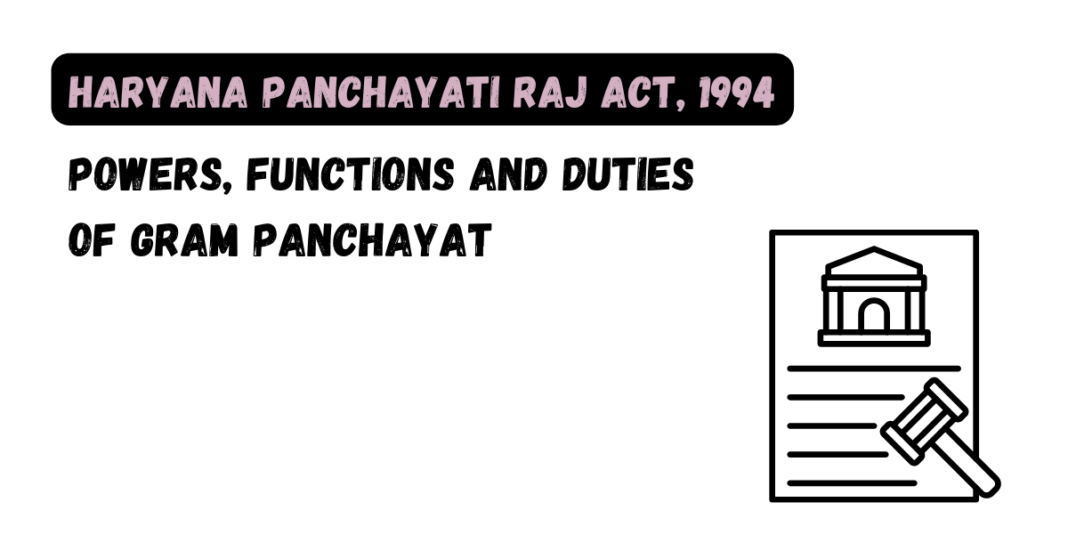The Gram Panchayat is a local governing body in India at the village level, consisting of elected representatives from the Gram Sabha.
Powers of Gram Panchayat
- To levy and collect local taxes, duties, tolls, and fees on various activities within its jurisdiction.
- To make and implement development plans and schemes for the village.
- To supervise and regulate the use of community land and common property resources.
- To manage the local markets, fairs, and festivals.
- To regulate the use and maintenance of water resources in the village.
- To ensure the provision of basic services such as water supply, sanitation, healthcare, and education.
Functions of Gram Panchayat
- To provide and maintain basic infrastructure such as roads, drainage, and streetlights.
- To promote the development of agriculture, animal husbandry, and other rural industries.
- To provide for the welfare of weaker sections of society such as the elderly, women, and children.
- To organize and support local self-help groups, cooperatives, and other community-based organizations.
- To maintain records and registers related to the village population, property, and public works.
Duties of Gram Panchayat
- To implement the decisions and resolutions passed by the Gram Sabha.
- To maintain law and order in the village and resolve disputes at the local level.
- To ensure the proper utilization of funds allocated for rural development.
- To monitor and evaluate the implementation of rural development programs in the village.
- To promote and preserve the cultural heritage and traditions of the village.






This is the answer